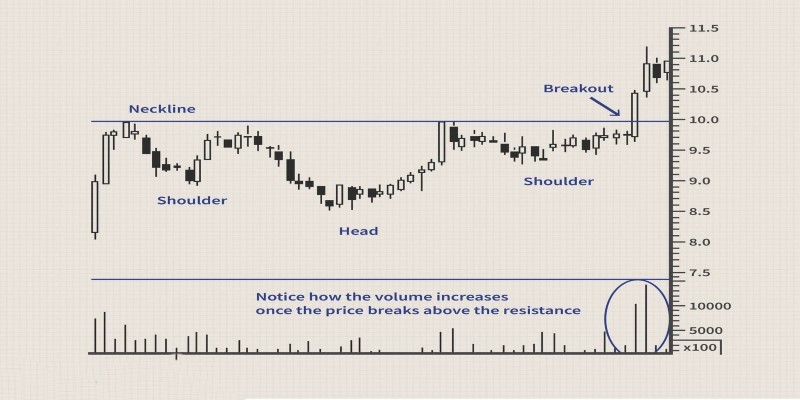The Evolution of iBuyers in Real Estate
In the last few years, the arrival of iBuyers has greatly changed how things work in the traditional real estate market. iBuyers are companies that use technology and data analysis to provide fast cash offers on homes, aiming for a quick transaction process. In this article, we will explore how these instant buyers are changing different parts of the real estate industry such as the buying and selling process as well as market trends and what consumers like.
How iBuyers Simplify Home Selling?
iBuyers make the process of selling a home simpler and faster. They use advanced technology and data analytics to give homeowners an option that is quick, easy, and less complicated than traditional ways. By removing steps like listing homes on the market, arranging showings or holding negotiations for long periods as well as waiting through various inspections, iBuyers offer sellers a more efficient method to sell their properties. This efficiency is made even more effective because they use algorithms that examine property details along with current market movements to create immediate money offers.

Hence, people who own homes can escape from the unsureness and slowness of conventional selling methods, concluding transactions in just a few days instead of many months. Also, iBuyers usually give sellers flexible closing times. This means that a seller can pick the date of closing which fits with their requirements. This might be very helpful for homeowners who are dealing with time pressures or those who want to speed up the selling procedure because of different reasons like moving to another place or having financial emergencies.
- Flexibility: iBuyers typically offer flexible closing timelines, allowing sellers to choose a closing date that suits their needs, providing convenience and customization.
- Certainty: With iBuyers, sellers can avoid the uncertainty of traditional sales processes, as deals are typically closed quickly and efficiently, providing peace of mind.
The Impact on Pricing and Market Trends
The introduction of iBuyers into the real estate market has caused important changes in how prices are set and overall market behavior. Even though these companies commonly buy houses under their actual value to consider repair expenses and profit, their fast transactions help create more clearness of price and fluidity within the market. Also, activity by iBuyers has sparked trends for home flipping where these firms purchase properties intending to resell after required renovations which adds energy to the housing sector.
Nonetheless, the rise of iBuyers has ignited discussions about their effect on housing costs and availability. Those who criticize say that algorithms employed by iBuyers might underestimate prices or not include distinct characteristics in their calculations, possibly causing discrepancies in valuations. Moreover, there is worry that too much dependence on iBuyers could twist local housing markets, reducing chances for conventional buyers and sellers while worsening disparities.
- Affordability Concerns: Critics raise concerns about the potential impact of iBuyers on housing affordability, as their pricing strategies may not always align with market value, potentially affecting overall affordability.
- Market Distortions: Excessive reliance on iBuyers could distort local housing markets, leading to reduced opportunities for traditional buyers and sellers and contributing to market inequalities.
Challenges and Criticisms
iBuyers, even with their ease, aren't without problems and criticisms. One common issue people have is that the algorithms used by these iBuyers might not correctly evaluate property values. This raises worries about possible underestimation or overlooking special features which could impact pricing. Also, there are worries regarding market disturbances due to the fast growth of iBuyer platforms like homogenization in housing markets and lesser chances for usual buyers and sellers.
Furthermore, certain critics express concerns that iBuyers might not always put the needs of sellers first. They may concentrate more on making the largest profit and lowering risks. This situation questions the visibility and fairness in iBuyer dealings, leading to demands for increased control and supervision to guarantee protection for consumers.
- Regulatory Oversight: Calls for greater regulatory oversight of iBuyer transactions have been voiced to ensure consumer protection and transparency in the real estate market.
- Seller Interests: Critics raise concerns about whether iBuyers always prioritize the best interests of sellers, highlighting potential conflicts of interest and the need for greater transparency.
The Future of Real Estate Transactions

The future of real estate transactions is changing because iBuyers are becoming more common, which has deep effects on those involved in the industry. As technology keeps improving and people's choices change, it's expected that iBuyers will become a part of the regular market more and more. This change in environment could lead to competition between usual real estate agents or brokerage firms with these new types of buyers - this might make them change their strategies and services so as not to lose out on business opportunities offered by an evolving landscape.
Moreover, the progress of iBuyers is likely to encourage innovation and effectiveness in the real estate field. This can result in better experiences for customers and smoother processes for transactions. But, this change brings its difficulties too. Real estate experts must keep up with technology changes and market movements to stay important in a growingly competitive market.
- Technological Advancements: The rise of iBuyers is expected to drive technological advancements and innovation in the real estate sector, enhancing customer experiences and streamlining transaction processes.
- Industry Adaptation: Industry professionals will need to adapt their strategies and services to remain competitive in the evolving real estate landscape, staying abreast of technological developments and market trends.
Consumer Considerations and Choices
For people who own homes and are thinking about selling, they need to carefully think over the good and bad sides of iBuyer as opposed to traditional ways. Even though iBuyers can be more convenient and fast, sometimes they may not give the best-selling price like listing on the open market does. So sellers should evaluate their main concerns, timeline for the sale process as well and monetary objectives before making a final choice.
Furthermore, sellers must research and investigate iBuyer offers deeply. They should comprehend the deal's requirements entirely before making a decision. This comprises reviewing charges, finalizing costs, and all possible hazards related to selling to an iBuyer. With such factors in mind, vendors can choose wisely according to their goals and likes.
- Due Diligence: Sellers should conduct thorough research and due diligence when evaluating iBuyer offers, ensuring they understand the terms and conditions of the transaction fully, including fees, closing costs, and potential risks.
- Informed Decision-Making: By carefully assessing their priorities, timelines, and financial goals, sellers can make informed decisions that align with their objectives and preferences, maximizing their outcomes in the selling process.
Conclusion
In conclusion, the rise of iBuyers is transforming the real estate market by offering a new approach to buying and selling homes. From expedited transactions to shifting market dynamics, the influence of iBuyers is undeniable. As the industry continues to evolve, stakeholders must stay informed and adaptable to navigate the changing terrain effectively. Whether embracing iBuyer platforms or sticking to traditional methods, understanding the implications and options available is key for success in today's real estate landscape.












